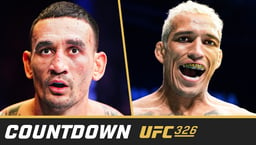
Issue 080
October 2011
Know the facts before you start to point the finger
Rosi Sexton is a pro fighter, sports therapist and registered osteopath. She can be contacted via her web page www.rosisexton.com.
With the recent events surrounding Nate Marquardt’s dismissal from the UFC, testosterone is a hot topic in the MMA world. There’s been much debate about testosterone replacement therapy, and whether it should be allowed in sports such as MMA, or whether it’s an easy way for fighters to get away with using steroids.
Testosterone is the best known of the androgenic hormones. It’s responsible for many of the features we associate with male-ness. In men, testosterone is mostly produced in the testicles, but its release depends on the levels of other hormones that are released by the hypothalamus and the pituitary gland in the brain. Women also produce some testosterone, but at a much lower level than healthy men.
Testosterone is associated with muscle growth and strength, and many athletes have tried to gain an advantage in competition by supplementing their natural levels with synthetic versions of the hormone, or drugs that mimic its effects. Used inappropriately, this can potentially cause serious health problems, while the use of anabolic steroids is banned by the governing bodies of most sports.
In the US, where MMA is regulated by the state athletic commissions, fighters may be tested for banned substances. Marquardt himself tested positive for nandrolone back in 2005. So far so good. Most cases of steroid use are fairly black and white. When a fighter takes a banned substance for the purposes of performance enhancement, he can be fined or suspended by the relevant commission.
A problem occurs though when a banned ‘performance enhancing’ drug also has a legitimate medical use. When this happens, an athlete who needs the drug for a medical reason can apply for a therapeutic use exemption (TUE). To do this, s/he must have been prescribed the drug by a doctor for a specific medical condition. In some cases, documented test results are needed to confirm the diagnosis, to ensure that the drugs are being used for legitimate reasons. Drugs covered by TUEs include certain asthma medications, some powerful anti-inflammatory drugs – and testosterone.
There are many conditions that can result in reduced testosterone levels. Testicle damage – for example, due to treatment for testicular cancer – is an obvious example. Supplementation with synthetic testosterone may be prescribed to give the patient a normal life and to relieve symptoms that can include infertility, reduced muscle mass, depression and fatigue.
Here’s where it gets tricky. Testosterone levels naturally have a large variation, with some men naturally producing more than twice as much as others. Levels also normally decrease with age. Where you draw the line between ‘low’ and ‘normal’ T-levels can largely be subjective. This has led to a whole industry promoting TRT to otherwise healthy middle-aged men. Advocates of TRT say common and non-specific symptoms such as “tiredness, lack of energy and loss of libido” may be symptoms of low testosterone, and thus be cured by supplementation. The long-term health effects of TRT are being debated.
So, are fighters using low testosterone as a ruse to get away with using steroids? It’s not as easy as you might think. In order to be granted a therapeutic use exemption for TRT, fighters need to go through a rigorous process to demonstrate their levels are indeed low – below what would be expected from natural variation alone. Testosterone levels after supplementation are checked and have to be below a certain value, certainly much lower than the levels of androgens taken by athletes who are using steroids for performance enhancement. It was his doctor’s failure to adhere to this protocol that left Marquardt in trouble not just with the athletic commissions, but also with UFC president Dana White.
Many people point out that genuine testosterone deficiency is rare; seeing young, healthy looking fighters claiming they need TRT doesn’t sit well. Some argue that we should allow even fighters with a normal but lower than average level of the hormone access to TRT to ensure an even playing field.
Another consideration is a likely cause of low testosterone in a fighter is a history of steroid abuse. Indeed, in Nevada, a prior conviction for steroid abuse makes a fighter ineligible for medical exemption. Rarely discussed is the fact that testosterone deficiency can also be caused by head trauma. Various studies have shown that brain injuries can affect the pituitary gland, resulting in altered levels of a whole range of hormones including the sex hormones. One study even showed significant alterations in pituitary function in amateur kickboxers, although it didn’t address testosterone specifically.
This is an issue which arouses many strong feelings but has no easy answers. Fairness and the health of our athletes are both important considerations. Balancing them calls for understanding and informed decision making rather than knee-jerk reactions.










